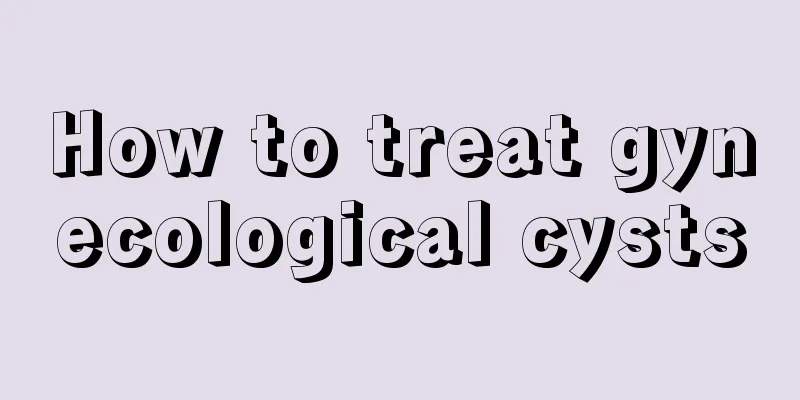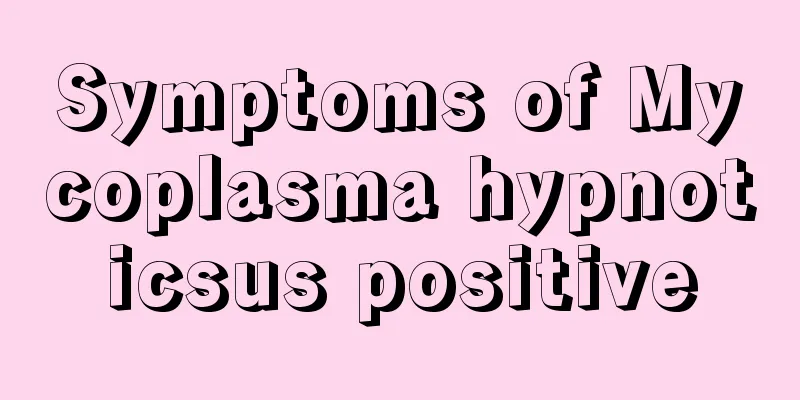How to treat gynecological cysts

|
Gynecology is definitely a hospital outpatient department that most women will visit after getting married and having children. Not to mention gynecological diseases that are difficult to cure, many women who develop cysts due to gynecological problems are very worried about their condition. There are many treatments for gynecological cysts, but one needs to worry about recurrence after treatment. Basically, all gynecological diseases are prone to recurrence and are difficult to cure. How to treat gynecological cysts If there are no symptoms, you can observe and do regular cervical scraping (TCT); or puncture the cervix with a needle and apply iodine; if accompanied by inflammation, give anti-infection treatment; physical therapy such as microwave, laser, freezing, electric ironing, etc. can also be used. If there are no other associated conditions (such as cervical lesions, etc.), colposcopy or LEEP treatments are generally not recommended. prevention 1. Pay attention to personal hygiene, exercise, and nutritional hygiene to ensure physical and mental health, keep the vulva clean, and prevent pathogens from invading and causing illness. 2. Have sexual intercourse in moderation and avoid excessive sexual intercourse. Pay attention to sexual hygiene, clean the vulva before and after sexual intercourse, and the spouse should pay attention to cleaning the smegma of the penis. 3. Implement family planning, take contraceptive measures, and try to avoid mechanical damage to the cervix caused by multiple abortions. At the same time, gynecological surgical operations must be performed strictly aseptically to prevent iatrogenic infection and injury. Avoid damaging the cervix during delivery. If cervical laceration is found, it should be sutured promptly and antibiotics should be used appropriately. How are cysts formed? 1. Genetic factors: According to statistics, one-fifth of women with a family history of ovarian cysts suffer from this disease. 2. Endocrine factors: Ovarian cysts usually occur in women of childbearing age with active endocrine function. If women suffer from endocrine disorders due to cold or obesity, which increases the level of male hormones, it is easy to cause ovarian cysts. 3. Environmental factors: If the living and working environment of female friends is polluted, such as smoking, which is common among women, it can easily cause ovarian diseases. 4. Unhealthy lifestyle: If female friends have bad living habits and suffer from long-term psychological stress, it will easily cause excessive acidification in the body and reduce immunity, which will cause abnormal proliferation of ovarian tissue and eventually lead to ovarian cysts. |
<<: Thick and bloody vaginal discharge
>>: Headache during confinement
Recommend
Why does watery vaginal discharge contain blood?
Leucorrhea can be called a health check of women&...
Ectopic pregnancy conservative treatment or surgery, which is better?
When a woman is pregnant, she may have an ectopic...
I had an amniocentesis for a minor cold
Before pregnant women undergo amniocentesis, they...
How long does it take to stay in confinement after miscarriage?
Women who have had miscarriages also need to take...
Can I go out for a run or a walk due to COVID-19? What are the benefits of drinking more water due to COVID-19?
During the Spring Festival, how many people staye...
Who lives longer, the one who rests for a long time or the one who exercises every day?
Some people say "life lies in movement"...
The Secret of Blood Clots Caused by Medical Abortion
In the lives of increasingly open-minded young pe...
Why can't Tremella be cooked? How to cook Tremella so that it can be cooked easily
As we all know, Tremella is a common delicacy. It...
How to plant sweet potatoes to make them grow big How to plant sweet potatoes to produce more potatoes
Sweet potatoes are rich in nutrients. They are ri...
Will it be painful to have a curettage if the menstruation does not stop?
Many women need to undergo curettage due to some ...
What to do if you are very fat during late pregnancy
Most people have a misconception about maternal o...
How to treat menstrual headaches?
Menstrual migraine: refers to headaches that occu...
How to treat amenorrhea caused by endocrine disorders
For us women, often our bad living habits such as...
Symptoms of pancreatic dysfunction in girls
Girls must pay attention to controlling their pan...









